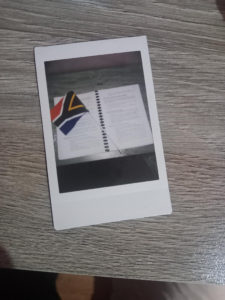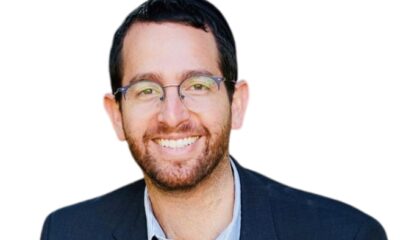
Youth
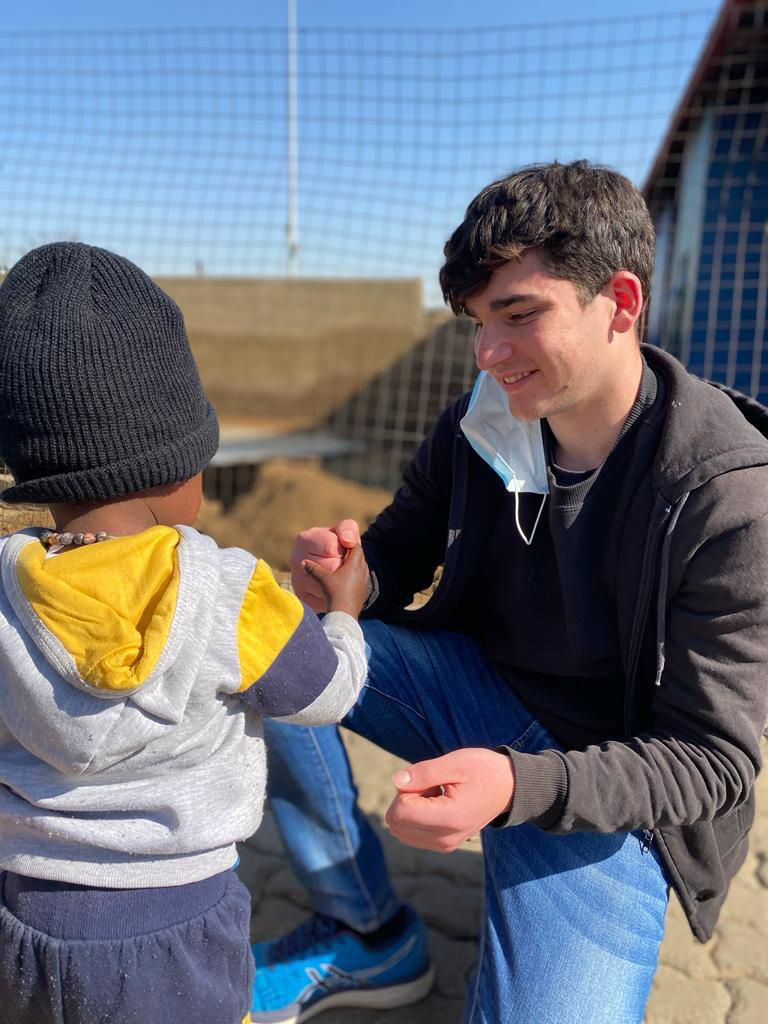
Youth Day – past, present, and future
Though Youth Day was inspired by the Soweto Uprising in 1976, our youth wasn’t around then. The SA Jewish Report asked pupils at Jewish schools what Youth Day means to them today. Here are their written and photographic responses:
Youth Day represents so much more than an extra day off school. Youth Day honours and commemorates the sacred lives of the South African youth who died as heroes in the uprising against the Bantu education system. This encapsulates the idea that in spite of being discriminated against, South African youth were empowered by their activism. They fulfilled their civic responsibility to fight for human rights. The heroism and bravery displayed on 16 June 1976 serves as a reminder and that we need to acknowledge our power, privilege, and platforms, and use our voices to catalyse change and promote equality and justice. Yakira Aires – Grade 11 King David Linksfield
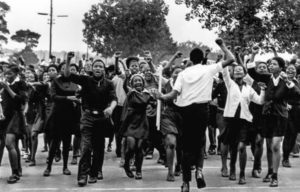
Youth Day is about freedom to choose and become the best version of yourself. It’s about growth and potential. Today, we’re lucky enough to live in a country where we have the freedom to do these things, but we cannot forget the time when students were denied the basic freedom to learn in their home language. Standing up for themselves resulted in them losing their lives.
We can never take for granted the basic rights our Constitution gives us. Whenever we feel that our freedom as youth is threatened, we should stand together and fight for what we believe is fair and right. Being Jewish adds another layer to this important concept because as Jews, we have always needed to fight for our right to exist as a nation. The way to protect the freedom of youth in our country is to get involved in projects that uplift people’s lives and allow them to grow to their full potential. Amira Hanson – Grade 7 King David Victory Park

South Africa’s motto is “unity in diversity”. On Youth Day, that’s exactly what we commemorate. We remember the protests that occurred across our country when students from different schools marched together to protest against Afrikaans as a compulsory subject.
When I think of the protests on Youth Day, I realise how privileged I am to go to a private Jewish school with a choice of subjects based on my interests. I’m aware of the difference between my privileged environment and that of those students living in deprived, impoverished circumstances. I would love to be able to initiate projects to uplift these communities such as literacy programmes to ensure all children are taught how to read, and to organise times for children from privileged schools to visit underprivileged schools to share information and skills. On this day, we should celebrate our youth who are the future of our country. Ella Passman – Grade 7 King David Victory Park
As a young Jewish boy living in South Africa and celebrating Youth Day on 16 June, the similarities between the struggle that the Jewish people worldwide and black people living in South Africa under the apartheid system had to endure isn’t lost on me. We both had to fight for our freedom after being persecuted, harassed, ridiculed, and even murdered – all because of race or religion.
As a boy about to celebrate my Barmitzvah, I’m grateful that I get to celebrate this milestone in all its glory, and to be proud of my heritage. I also realise how incredibly blessed I am to attend a Jewish school – it feeds my soul.
My great grandparents had to fight for their freedom during Hitler’s reign just as black youths fought during apartheid in 1976. They fought so that my fellow South Africans and I could live without fear of discrimination today. As a young person in 2022, I take the message from these times that we must make it known when things are unfair or wrong. A timeless Torah message is that we’re all made in Hashem’s image. I choose to live by this on Youth Day – and every day. Levi Rosen – Grade 7 King David Victory Park
As I delved a little deeper into the history of the Soweto Uprising, I began to realise that Youth Day is symbolic of the realisation of a vision fought for by thousands of South African youth. It’s a celebration of youth, power, and unity and the profound reality of how we as young people have a responsibility to make an impact on the world.
We not only look back at 16 June 1976 to recall how far we’ve come, but to remind ourselves to keep moving forward. We still have far to go. Our fight continues to unlock our potential, create change, and positively influence our country’s future.
My wish as a South African Jewess is for the fences to come down, for proverbial longer tables to be built, and for South African youth to unite, communicate, and collaborate for a better future, regardless of background, race, and gender. Noa Nerwich – Grade 10 King David Linksfield
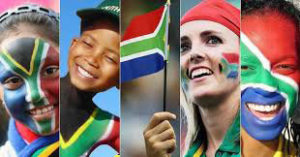
Youth Day is a day to celebrate the privilege of being able to learn in my mother tongue, and to honour the courage of youth everywhere who fight for the right to education. Kelli Hollander – Grade 12 King David Linksfield
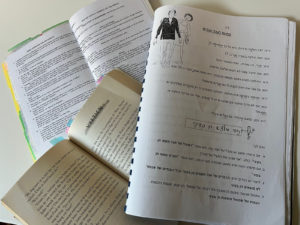
We cannot forget the sombreness of the event of 16 June 1976, in which South African schoolboy Zolile Hector Pieterson was shot and killed at the age of 12 during the Soweto Uprising. Though the image is imprinted in our minds and as we commemorate Youth Day to honour him and those who perished during this time, I prefer to focus on the positive aspects of this event.
To me, it’s an inspiring day in which I, as a 16-year-old, can celebrate youth, freedom, progress, and democracy. Last month, Yom Ha’atzmaut brought to mind the connection between my Jewish heritage and my South African roots. Attending this event also brought to life the South African independence we now share and can celebrate simultaneously. I hope Youth Day can be commemorated this year and in the future as a joyous occasion, like Yom Ha’atzmaut, that celebrates life and liberty instead of only mourning tragedy. Zoe Jay – Grade 10 King David Linksfield
Youth Day means immense gratitude. It’s recognition that I have access to one of the most powerful tools – education. This is a basic right that so many before me weren’t granted purely because of the colour of their skin. However, the youth who were denied their education were brave, and they marched for their rights. It’s because of their courage that so many can be grateful today. Jayda Sack – Grade 11 Yeshiva College
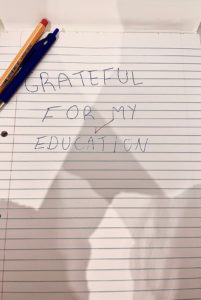
I’ve come to understand why I should be rejoicing on Youth Day. It’s an opportunity to appreciate the sacrifice and bravery of the powerful young leaders of the past who got us to where we are today. It’s also a day that allows us to recognise the responsibility that we, the current youth, have to build on this legacy. With our passion to change the world for the better and to bring morality into our society, it gives me the hope that we can achieve greatness as future leaders of South Africa and am Yisrael. Rafi Midzuk – Grade 11 Yeshiva College
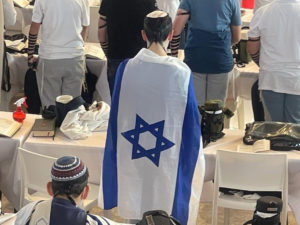
This Youth Day, we take the opportunity to acknowledge the privilege of the education we have been afforded and the opportunities we have received in our lifetime. To us, Youth Day is an important day to reflect on the wrongdoings of the past, and the challenges many students went through during apartheid to fight for their right to a fair, just, and equal education.
This 16 June, we also are focusing on how we can make an impact on the youth in the years to come. We aim to put our education to good use, and make it our goal to educate those around us, whether by teaching something new to the family around the Shabbos table, or by helping our friends better understand algebra, we all have a responsibility to ensure the future of education in South Africa.
Youth Day also serves as a day where we celebrate young leaders, and encourage younger generations to become an active part in making change. We must come together as future leaders of our nation, and continue to forge a new, proud South Africa that celebrates and finds strength in its diversity. Greg Landau – Grade 11 King David Victory Park
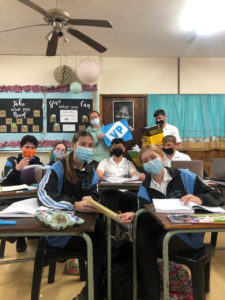
On a chilly June morning, my matric peers and I clambered into our school bus to set out on our Soweto tour. It was a tour which would commemorate Youth Day and give us insight into the history, present reality, and future of South Africa’s youth.
The youth of 1976 courageously resisted oppression. This struggle is forever preserved in Sam Nzima’s iconic photograph of a dead Hector Pieterson. It fought for equal education, seeing it as something crucial to upliftment and the eventual removal of apartheid.
Education, from early childhood development to tertiary level, is recognised today, as in 1976, as an answer to the issues of poverty, unemployment, and general inequality in our society.
The Soweto tour gave me a glimpse into South Africa’s future through the warm welcoming smiles and delicate hands of Kliptown’s children. They represent hope as a result of the sacrifice of 16 June, 46 years ago. Adam Bertoldi – Grade 11 King David Victory Park
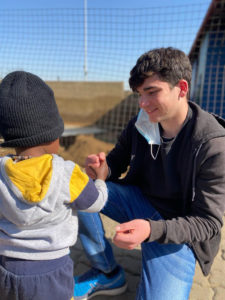
Youth Day is a day that created massive ripple effects. It’s a day in which the youth of apartheid South Africa stood up for what they believed in. Photos of the event spread across the world, which called for change. Youth Day means that every child has the right to a proper education. Youth Day is a day of power and courage because children took their future into their own hands, and they did so in peace, when adults couldn’t. Shira Ephron – Grade 11 King David Victory Park
